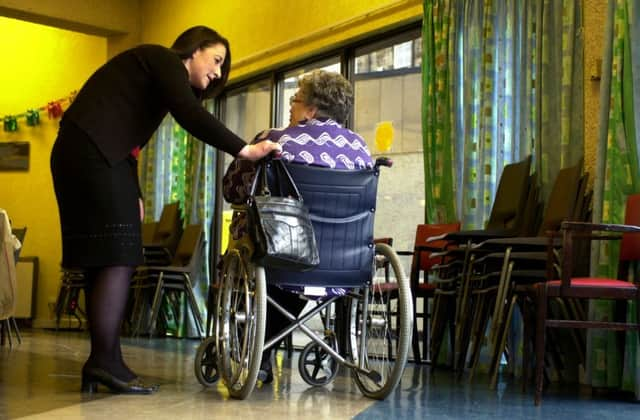Claire Spence: Holistic approach needed in caring for the elderly


Dr Atul Gawande, a prominent American surgeon, writer and public health researcher, champions this view, advocating a holistic approach that focuses on the treatment of a person as a whole, not just the symptoms of their disease or illness.
Every single one of us is an individual with our own belief system, our own wants and needs, our own unique body, and should be treated as such.
Advertisement
Hide AdAdvertisement
Hide AdAs we age, we accept that our health will diminish and there may come a time when we require additional support.
But where to start?
Many elderly people wish to remain in their own homes – they wish to maintain their independence and their sense of self and individuality which directly links to their home.
They may have raised their family in the very same home, and bought it with their spouse who has now passed away – their memories deeply embroiled in its very foundations.
Working in the home care sector, I see the direct benefit this has on the clients and families I support, especially true for those living with dementia and other specialist conditions, as they often feel more comfortable in familiar surroundings.
Advertisement
Hide AdAdvertisement
Hide AdPeople can automatically assume that if an elderly person’s health deteriorates to a certain level, their next port of call should be a residential care home.
It almost seems that they have been written-off and this is the inevitable choice.
To be clear, I am not saying that residential homes do not have their place, however as individuals, families and professionals involved in an older person’s ‘circle of care’ we need to be more aware that there are other options to consider which could greatly boost an elderly person’s sense of well-being and quality of life – something that we should all seek when arranging care for our loved ones.
Home care allows an older person to remain in the home that they treasure, to keep their memories alive and to maintain as much of their independence as is possible.
Advertisement
Hide AdAdvertisement
Hide AdAnd there are different options under the home care ‘umbrella’ to consider. Hourly care is a flexible service where matched carers can visit at the times and days required by the individual, based on their specific needs.
Live-in care is a less known option where a full-time carer resides in the home 24/7, able to support all aspects of daily living as required.
Both of these options help avoid institutionalisation, allowing the person to tailor their own care package and continue to have full control over their daily routines.
Sadly, poor practices in the home care sector are well reported in the media and there are many damning reports of elderly people suffering at the hands of a poor quality care service, often where carers are required to work to utterly unrealistic timescales of 15 or 30 minute visits.
Advertisement
Hide AdAdvertisement
Hide AdThe importance of awareness therefore also extends to being able to judge what makes a good home care service. I would initially recommend reading the provider’s latest inspection report by the Care Quality Commission (CQC), who regulate adult social care – this will give you a clear picture of how they meet the required standards.
Speaking to and getting to know the company is also essential – it is important that their ethos matches the person who is going to be cared for.
If the care involves a specialist condition such as dementia, stroke or Parkinson’s disease, make sure that they specialise in this type of care.
Health professionals such as GPs, District Nurses, hospital discharge teams and therapists play a key role in ensuring that their local communities are aware of how to help elderly people live at home for longer and reduce pressures on NHS services.
Advertisement
Hide AdAdvertisement
Hide AdNot only are they often the initial point of call for families considering their options, but they are part of the interdisciplinary team needed to achieve positive health and social outcomes for elderly people living in the community.
Charities and groups providing activities are also part of this, who offer anything from tea dances to knitting groups, to walking, singing groups, and art groups.
The more these teams can be aware of each other and pass information on to the families they support, the more likely we are to enable elderly people to be treated not just for the symptoms of their ailments, but as the truly wonderful and unique individuals that they are.
• Claire Spence is a Home Care Co-ordinator, part of the Yorkshire team of elderly home care provider Carefound Home Care.